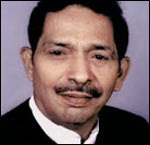Downloader-UA.h is another one in the series of downloader viruses that have begun this month to unleash its fury onto the uninformed netizens in a perfect game of deceit. Many music and video websites, especially www.fastmp3player.com contain links to files like the following which are enough to attract the attention of adolescents and young adults for obvious reasons (as evident from the names): preview-t-3545425-adult.mpg, preview-t-3545425-changing times earth wind .mp3, et al. When a user attempts to load one of these MP3 and MPG files, they are directed to download a file named PLAY_MP3.exe. When the user downloads and runs PlayMP3.exe, a 4,800 word (End user License Agreement) is displayed. The installed file, PlayMP3.exe from PlayMP3.biz, in reality acts as a browser control wrapped in an exe, which loads a webpage running the Wimpy MP3 Flash player.
All the personal information of the user can be gathered and sent to unidentified locations over the internet on the activation of the Trojan. The best way to remove the virus is to switch off the System Restore utility in the Properties section of My Computer.
There were the five online pests that have destroyed many working PCs in the recent past. We pray, do keep away; rather, stay protected!
For more articles, Click on IIPM Article.
Source : IIPM Editorial, 2009
An Initiative of IIPM, Malay Chaudhuri and Arindam chaudhuri (Renowned Management Guru and Economist).
For More IIPM Info, Visit below mentioned IIPM articles.
Event at IIPM
2300 IIPM students get jobs
The Most Revolutionary Concept In Education PLANMAN CHE CENTRE FOR HIGHER EDUCATION, Supported by IIPM India’s Leading B-School
Detail of all IIPM branches
IIPM set to beat economic slowdown
IIPM Admission Detail
IIPM - Admission Procedure
IIPM, GURGAON
All the personal information of the user can be gathered and sent to unidentified locations over the internet on the activation of the Trojan. The best way to remove the virus is to switch off the System Restore utility in the Properties section of My Computer.
There were the five online pests that have destroyed many working PCs in the recent past. We pray, do keep away; rather, stay protected!
For more articles, Click on IIPM Article.
Source : IIPM Editorial, 2009
An Initiative of IIPM, Malay Chaudhuri and Arindam chaudhuri (Renowned Management Guru and Economist).
For More IIPM Info, Visit below mentioned IIPM articles.
Event at IIPM
2300 IIPM students get jobs
The Most Revolutionary Concept In Education PLANMAN CHE CENTRE FOR HIGHER EDUCATION, Supported by IIPM India’s Leading B-School
Detail of all IIPM branches
IIPM set to beat economic slowdown
IIPM Admission Detail
IIPM - Admission Procedure
IIPM, GURGAON








